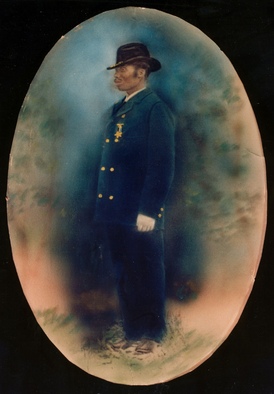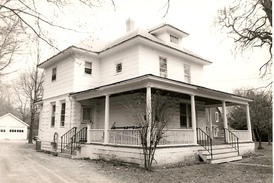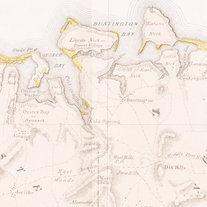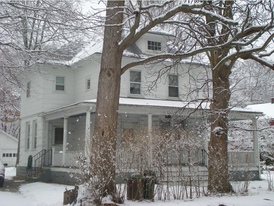
Samuel Ballton House
Samuel Ballton was a well-respected citizen of Greenlawn in the Town of Huntington. It was in 1899 that Ballton was crowned the "Pickle King." His efforts produced an amazing crop of 1.5 million pickles in a single season. Ballton, however, had already led a remarkable life and went on to leave a unique legacy.
Samuel Ballton was born into slavery in 1838 on a Virginia plantation. At the age of 23, he was sent to work on a section of the Virginia Central Railroad in the Blue Ridge Mountains with other enslaved laborers. Miles from the plantation at the start of the Civil War, Ballton took the opportunity to flee slavery and found a position with a Northern regiment as a cook.
He had reason to return to Virginia--his wife, Ann Rebecca Richardson. Enslaved on neighboring plantations, the two were married in 1861. Together they walked 50 miles in 14 hours to freedom in Fredericksburg.
Ballton subsequently joined a Massachusetts regiment facing many battles in the Civil War. In 1873, he moved to Greenlawn, New York and made a living as a tenant farmer. He later became a sharecropper for Alexander Gardiner, owner of the largest farm in Greenlawn. It was at this time that Ballton became famous for the record numbers of cucumbers and cabbages that he produced.
While working for a large Boston pickle house, Ballton raised funds and began to acquire land near the railroad line in Greenlawn. He built several houses, significantly contributing to early 20th century development of the town, and encouraged individuals from the South to travel north to work on farms and build houses.
Ballton is remembered as a hard-working land owner and entrepreneur who contributed positively to the economic growth of Greenlawn. He died in 1917 and was buried in the Huntington Rural Cemetery.
This entry contributed by the Center for Public Archaeology at Hofstra University





